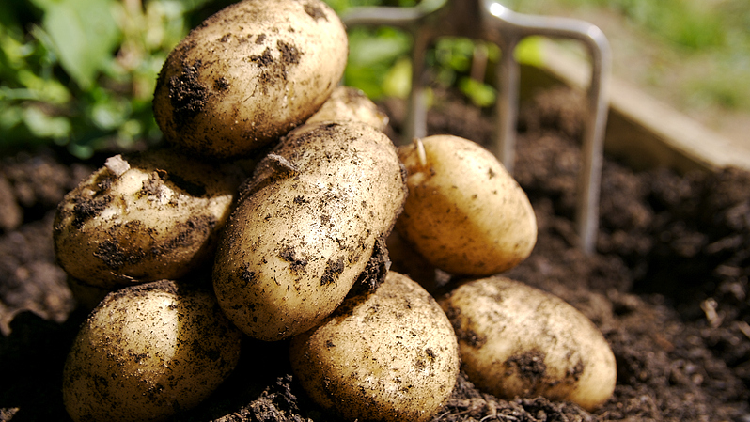Scientists in China Hasten Efforts to Make Potatoes Climate-Resilient
China, recognized as the leading producer of potatoes globally, is actively engaged in creating climate-resilient potato varieties. Potatoes play a vital role in global food security, yielding more than many other staple crops. Nonetheless, their sensitivity to climate change presents significant challenges. In response, Chinese scientists are dedicated to developing potato varieties that can endure extreme environmental conditions.

Weighing in at just 136 grams, these tubers are less than half the weight of an average potato in China, where common varieties can often reach twice the size of a baseball. As the largest potato producer globally, China plays a critical role in food security due to the crop's high yield compared to other staple crops.
However, potatoes are especially sensitive to heat. Climate change, exacerbated by fossil fuel emissions, is causing temperatures to rise dangerously while intensifying droughts and floods. To address the pressing need for food supply protection, Li, who works with the International Potato Center in Beijing, is spearheading a three-year study on the impact of elevated temperatures on potatoes, focusing specifically on China's two most prevalent varieties.
"I worry about what will happen in the future," Li said. "Farmers will harvest fewer potato tubers, it will influence food security."
The team cultivated their potatoes over three months in a walk-in chamber set to 3 degrees Celsius above the current average temperatures in the northern Hebei and Inner Mongolia regions, which are typically the higher altitude areas for potato cultivation in China. Their findings, published in the journal Climate Smart Agriculture this month, reveal that increased temperatures sped up tuber growth by 10 days but resulted in over a 50% reduction in yields.
According to a United Nations report issued in October, the world is on track for as much as 3.1 degrees Celsius of warming above pre-industrial levels by 2100 under the existing climate policy framework.
In Inner Mongolia, a group of workers swiftly collect freshly dug potatoes before impending rainfall.
"The biggest challenge for potatoes this year is the heavy rain," said manager Wang Shiyi. "It has caused various diseases... and greatly slowed down the harvest progress."
Simultaneously, the Yakeshi Senfeng Potato Industry Company, which specializes in seed potatoes, is investing in aeroponic systems, allowing for potato growth in controlled conditions above the soil. There is a growing demand among farmers for potato varieties that yield more and are less prone to diseases such as late blight, which once triggered the Irish Potato Famine and flourishes in warm, humid environments.
"Some new and more aggressive strains have begun to appear, and they are more resistant to traditional prevention and control methods," explained general manager Li Xuemin, detailing the company's approach based in Inner Mongolia.
The research conducted by the International Potato Center, headquartered in Lima, is part of a cooperative endeavor with the Chinese government aimed at assisting farmers in adapting to increasingly warm and wet conditions.
In the greenhouse adjacent to Li's laboratory, workers are seen pollinating white potato flowers to create heat-tolerant varieties. Li underscores that Chinese farmers must adapt within the next decade, suggesting they shift planting from the beginning of summer to spring or relocate their fields to higher altitudes to evade rising heat.
"Farmers have to start preparing for climate change," Li said. "If we don't find a solution, they will make less money from lower yields, and the price of potatoes may rise."
Jessica Kline for TROIB News
Discover more Science and Technology news updates in TROIB Sci-Tech












